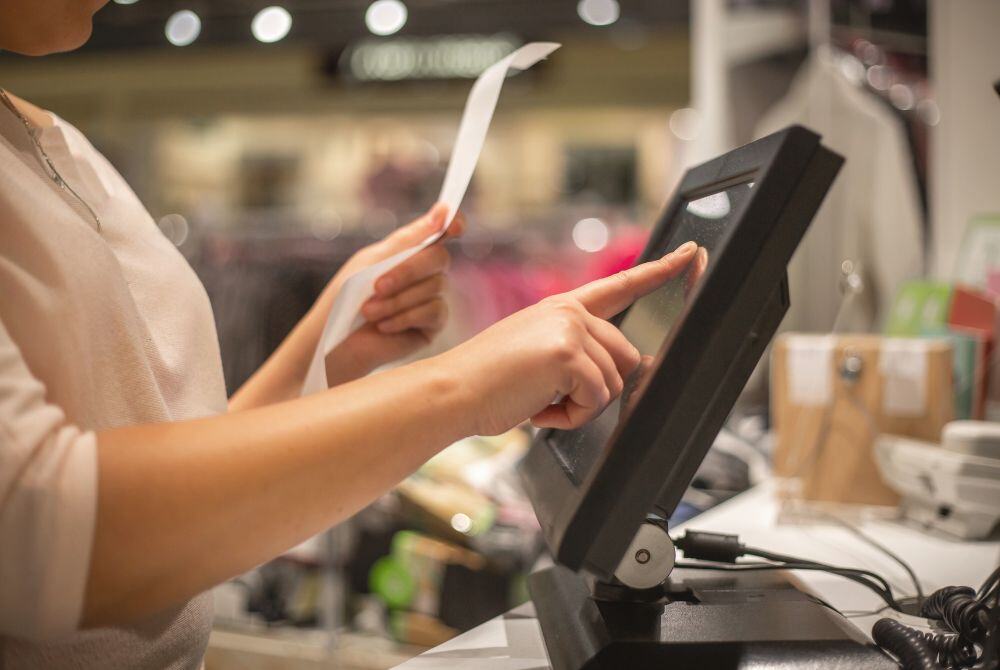What a recession might mean for your restaurant
A recession is bad for all businesses but can be especially rough on restaurants. Margins are already tight, and staffing issues can often compound...

In the rapidly evolving landscape of small business management, staying ahead of the curve is crucial. For many entrepreneurs and small business owners, this means transitioning from traditional cash registers to modern Point of Sale (POS) systems. But how exactly does a POS system impact your business financials? Let's explore.
While many small business owners still rely on old-school cash registers, upgrading to a modern POS system can be a game-changer. Think of your POS system as the heartbeat of your business. It records every transaction, captures customer information, tracks buying habits, and identifies sales trends. This isn't just about sales totals—it's about tapping into a wealth of data that can drive your business forward.
The data collected by your POS system holds the key to powerful insights. By analyzing this data, you can:
Identify popular products, allowing you to focus marketing efforts and manage inventory better.
Understand customer behavior, helping you tailor product offerings to meet their needs.
Track inventory levels in real-time, ensuring you never run out of stock or overstock.
With these insights, you can make data-driven decisions that optimize your marketing campaigns, improve product offerings, and keep your inventory in check.
A robust POS system goes beyond merely recording sales. It plays a vital role in maintaining accurate financial records. By integrating your POS system with your accounting software, you can:
Automate tasks such as recording sales and inventory, saving time and reducing errors.
Minimize the risk of fraud and discrepancies with features like employee access controls and detailed transaction logs.
Streamline your small business accounting processes, making tax planning and financial management more efficient.
Some small business owners may view the initial cost of a modern POS system as a burden. However, it's an investment with significant long-term benefits. Here’s why:
The cost of a POS system is typically a small fraction (less than 1%) of your overall revenue.
The return on investment can be substantial through reduced errors, improved inventory management, and targeted marketing campaigns.
Increased efficiency from automating routine tasks.
Enhanced security measures provide peace of mind.
Selecting the best POS system for your business depends on your specific industry and needs:
Research different options and consult with your CPA or industry peers for recommendations.
Consider factors such as the size and complexity of your business, your budget, and the features you prioritize.
Some POS systems offer advanced features like customer relationship management (CRM) tools, loyalty programs, and detailed reporting tools.
Look for systems that integrate seamlessly with your existing software for smoother transitions.
Your POS system is a powerful tool waiting to be unlocked. By leveraging the data it collects, you can gain valuable insights into your business, make informed decisions, and drive growth and success. Investing in the right POS system will streamline your operations, strengthen your financial controls, and give you a deeper understanding of your customers. This powerful combination is a recipe for long-term success.
Do you need help growing your business with the right POS system? Click the ‘Let’s Chat’ button to see if Kaizen CPAs + Advisors is the accounting firm for you.

A recession is bad for all businesses but can be especially rough on restaurants. Margins are already tight, and staffing issues can often compound...

Last week, we took a look at some ways you can increase profitability for your restaurant. We admit: it’s a lot to digest! We thought we’d take some...

In our continuing effort to offer value to restaurant owners, we thought we’d take a deeper look at one of the best ways to increase your...